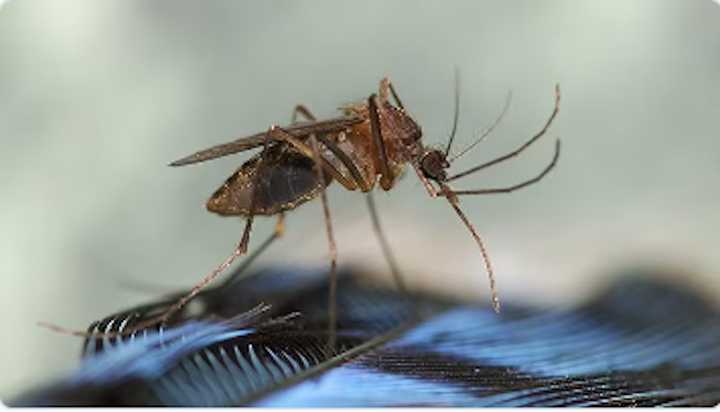Eastern equine encephalitis (EEE) is caused by a virus spread to people through the bite of an infected mosquito, similar to the West Nile virus.
On Tuesday, Aug. 27, an adult from the town of Hampstead, in southeastern New Hampshire who tested positive for EEE died, the New Hampshire Department of Public Health announced. He had been hospitalized with the illness.
The man has been identified by his family as 41-year-old Steven Perry, according to ABC-TV affiliate WMUR in Manchester, New Hampshire.
A healthcare professional and avid golfer, he was described as young, and healthy, by his mother, Judith, who said she couldn't believe a mosquito is to blame for his death, WMUR reported.
It was the first human case of EEE in New Hampshire since 2014.
Symptoms of the virus are fever, headache, vomiting, diarrhea, seizures, behavioral changes, and drowsiness, according to the Centers for Disease Control and Prevention (CDC).
"People living in areas where eastern equine encephalitis virus circulates should protect themselves by preventing mosquito bites," the CDC said.
Only a few cases are reported in the United States each year, with most in eastern or Gulf Coast states.
But unlike West Nile, EEE is often fatal.
About 30 percent of people with eastern equine encephalitis die, and many survivors have ongoing neurologic issues.
Authorities are urging people to take steps to prevent mosquito bites, including:
- Using effective mosquito repellents,
- Wearing long sleeves and pants when outside,
- Avoiding outdoor activities in the early morning and evening hours when mosquitos are most active.
It's also important for residents to remove standing water from around their homes to reduce mosquito populations and ensure doors and windows have tight-fitting screens without holes.
Click here to follow Daily Voice Chelsea and receive free news updates.
